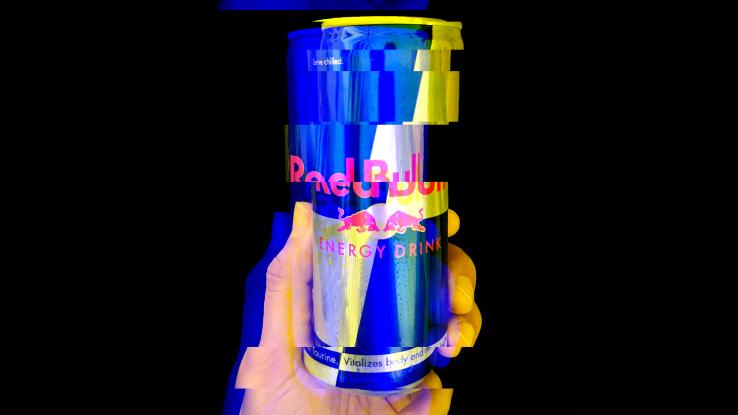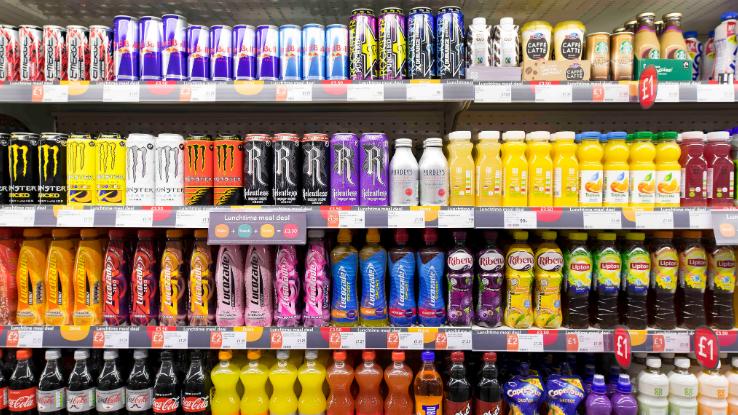
In today’s fast-paced society, burnt out seems to be around every corner. Many people feel such a lack of energy or drive that getting through the day and accomplishing all of their responsibilities can feel near-impossible. This has led many folks to turn to energy drinks for some extra fuel.
These pick-me-ups promise to provide an energy boost that lasts for hours. In some cases, manufacturers add chemicals to these drinks in an attempt to offer your body the same effects of a full-night’s rest. However, these chemicals can also lead to some less-than-desirable health outcomes.
The question is, do these energy drinks do more harm than good? Energy drink production is a multi-billion dollar industry worldwide — and, as such, a great deal of research, sponsored by the industry itself, has been undertaken to parse out these health concerns. Therefore, it can be difficult to sort through conflicting or inconclusive evidence about how these drinks impact our bodies, which is why we’re taking an in-depth look at the pros and cons of energy drinks.
Note: This article does not provide coverage of, or recommendations for, any specific brand of energy drink. The images used within this article are simply common examples of this type of beverage.
What’s in Energy Drinks?
Energy drinks are marketed either as beverages or dietary supplements that contain energy-boosting ingredients meant to increase feelings of alertness and stamina. They come in full 16 oz bottles or smaller 2.5 oz ‘shots’ — some with added sugar and some without. But what else is typically added to these popular drinks?
Caffeine
- A psychoactive ingredient found in coffee and many soft drinks that stimulates the central nervous system to keep you alert and awake.
Taurine
- A type of amino acid that supports muscle and neurological function, and aids the body by regulating water and mineral salts in the blood. It is also used as a dietary supplement and can be found naturally in fish, meats, and breast milk.
Vitamins
- Various vitamin groups are commonly found on labels of energy drinks, as most of them enhance muscular, metabolic, nervous, and other bodily functions. Depending on each drink’s formulation, the amount of each vitamin may differ.
Glucuronolactone
- A naturally occurring metabolite of glucose that is sometimes added to energy drinks to provide increased alertness and reduce ‘brain fog.’
Guarana
- A stimulant herb that contains twice the caffeine content as a single coffee bean.

Pros Associated With Consuming Energy Drinks
An Energy Boost
- For those rushing to meet a deadline, energy drinks can lend a helpful hand to finish the last stretch. They have been shown to sharpen alertness and boost energy in times of need, especially during those afternoons where you find yourself struggling to finish the day.
Ability to Maximize One’s Workout
- Athletes sometimes use energy drinks to maximize their workouts and training. It can push physical limits to the extreme and help a person exercise even longer than they normally would.
Convenient Pick-Me-Up
- Energy drinks are a highly accessible means of increasing one’s energy level. In fact, in most cases they’re even more convenient than a freshly brewed cup of coffee — or a rejuvenating power nap.
Cons Associated With Consuming Energy Drinks
The ingredients found in energy drinks activate the central nervous system. This activation can also lead to some rather uncomfortable symptoms that may actually inhibit focus or performance during the day. These include:
- Dehydration
- Heart palpitations
- Tremors or shakiness
- Anxiety
- Agitation
- Upset stomach
The energy drinks sold in stores do not always have to follow regulations when it comes to their specific contents — nor do brands have to report the adverse effects and health consequences. Ongoing research from clinical reports and case studies point to the following adverse events linked to energy drink usage:
Metabolic Complications
- When you have an energy drink, your body has to work hard to metabolize and process the overwhelming intake of vitamins, additives and sugars. Your body can go into overdrive and produce stress hormones to help cope with the task at hand. Over time, this stress on your body can be more detrimental than helpful as metabolic issues may lead to medical complications like insulin resistance and diabetes.
Cardiovascular Problems
- Intake of energy drinks has been associated with stress on the heart and a higher risk for developing cardiovascular problems, such as irregular, rapid heartbeat, and increased blood pressure. These conditions can increase the likelihood of heart attack or stroke.
Psychological Effects
- While an occasional energy drink can help enhance alertness, too much may actually decrease your ability to function. Nervousness, irritability and anxiety can increase overtime, as well as the uncomfortable and distracting “jitters” common in that of an over-caffeinated person. Insomnia or disruptive sleep cycles can also develop, which can lead to a lower quality of life overall.
Dependence
- Energy drinks can be highly addictive over time if used on a daily basis. Withdrawal symptoms may be present when an individual tries to stop, including headaches and mood swings.
Death
- The Food and Drug Administration (FDA) reported over 30 deaths that were linked to energy drink usage between 2004 and 2012. Seizure, stroke, and heart attack were among the reasons that individuals sought emergency medical attention and, ultimately, did not survive.
Tips for Consuming Energy Drinks Safely
If you understand the pros and cons of energy drink intake and are still looking to boost your energy in this way, be sure to do so responsibly. When choosing a drink, pay attention to the following:
- Try to limit total caffeine intake to 400 milligrams per day — this includes coffee and soda.
- Drink plenty of water along with the energy drink; they are not meant to replenish your fluids and can be dehydrating.
- Stay away from energy drinks if you are pregnant, breastfeeding, or have underlying cardiovascular concerns.
- Energy drinks are not recommended for young children.
- Never mix energy drinks with alcohol. Although it is a popular cocktail concoction, the combination can place a lot of stress on your body and heart, as you are mixing a stimulant (energy drink) with a depressant (alcohol). The majority of emergency medical attention related to energy drink consumption stems from mixing these substances.
As always, it is important to consult with a healthcare provider if you are feeling constantly fatigued — or, on the other hand, if you’ve grown dependent on daily energy drinks for stamina. Some medical conditions, such as anemia, can make a person more tired than usual and a reliance on energy drinks may mask the problem, causing underlying conditions or illnesses to go untreated. Energy drinks may be safe when consumed in moderation, but it’s also important to consider alternative ways to support your alertness, stamina and productivity.
Resource Links:
- “Can energy drinks really boost a person’s energy?” via Mayo Clinic
- “Energy Drinks” via National Center for Complementary and Integrative Health (NCCIH)
- “Health Effects and Public Health Concerns of Energy Drink Consumption in the United States: A Mini-Review” via Frontiers in Public Health
- “Energy Drinks: A Contemporary Issues Paper” via American College of Sports Medicine
- “Adverse effects of caffeinated energy drinks among youth and young adults in Canada: a Web-based survey” via U.S. National Library of Medicine
- “Energy drinks may do more harm than good, researchers say” via Medical University of South Carolina
- “The Effect of Acute Consumption of Energy Drinks on Blood Pressure, Heart Rate and Blood Glucose in the Group of Young Adults” via U.S. National Library of Medicine
- “Documents Link More Deaths to Energy Drinks” via Center for Science in the Public Interest





